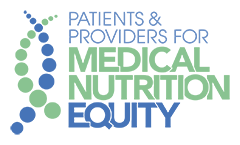Coverage of medical foods is a large part of my practice in both my time-effort and my care recommendations for patients. For every medical food prescription provided, It takes at least one hour to create letters of medical necessity, determine if coverage is possible, and to obtain a prior authorization (if covered). Once authorization has been obtained, it can take another hour to find a supplier in network with both the insurance and formula company. There have been instances where several days have been spent advocating for coverage and obtainment of formula for a single patientWe undertake this process for the majority of our 150 patients and have had to hire a case manager to handle these tasks.
In some cases, we are unable to achieve coverage despite our strong efforts. If a patient has an insurance we know is prohibitive to coverage, the recommendations we provide are altered as coverage for optimal treatment cannot be obtained. Many of these patients suffer long term effects of their poorly managed condition including increased hospitalizations, increased needs for costly medications, loss of time at school/work, and mental illness.
Patients who we are unable to obtain medical foods for are at a disadvantage in the management of their condition and has had me questioning the ethics of Newborn Screen. While inborn errors of metabolism are treatment, the prohibitive nature of obtaining these treatments seems to contradict newborn screening if treatment is unobtainable.
The biggest frustration as a provider is knowing that many patients are not receiving the care they need to manage their conditions. The second biggest frustration is that even when an insurance “covers” medical foods, it may still not be obtainable since many ‘in-network’ distributors will not supply the needed products.
Just yesterday (3/18/2019) an insurance informed me that a patient has coverage for a medical food she was recommended, but it is only Covered at 70% after she meets a $600 deductible. The 30% the patient is responsible equates to ~$1000/month since the only supplier in network increased the MSRP by 300%. This payment is prohibitive to the patient.
Last week I had a patient hospitalized because the family did not receive their shipment of medical food because the supplier didn’t send it. The supplier didn’t ship it, because the insurance hasn’t paid for the formula. We have documentation of coverage from the formula company.
Another patient is only receiving 1/3 of her nutrition requirements because her insurance will not cover his medical food and the family can only afford enough per month to cover 1/3 of his needs.
Lastly, In a coverage investigation for medical foods a family in which three siblings are affected by the same condition and all on the same medial food, the insurance provided different coverage for each sibling. The youngest sibling received coverage, but the two older siblings were denied. The reason for denial was that they weren’t G Tube fed and took the medical food orally. Despite appeals and peer to peers, the insurance would not cover medical foods for older siblings.
